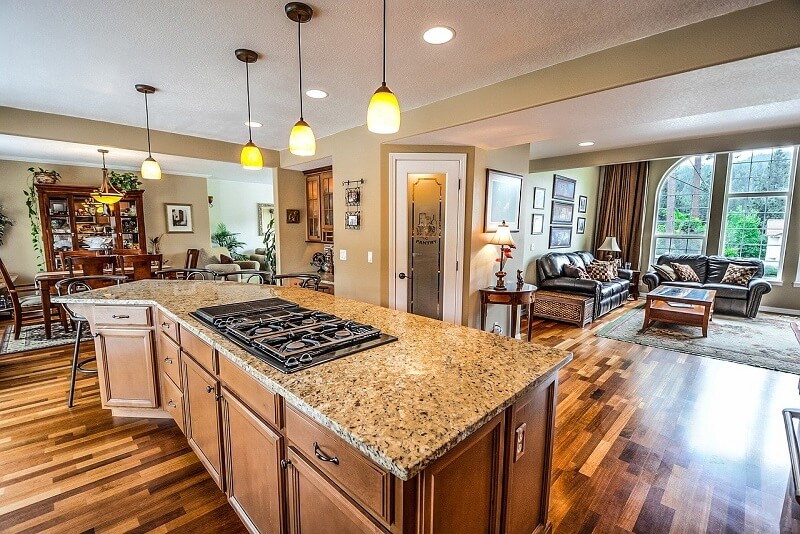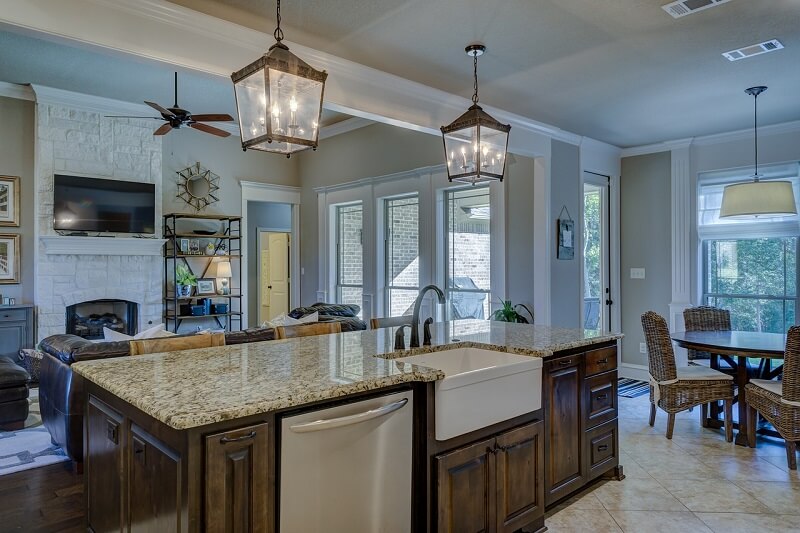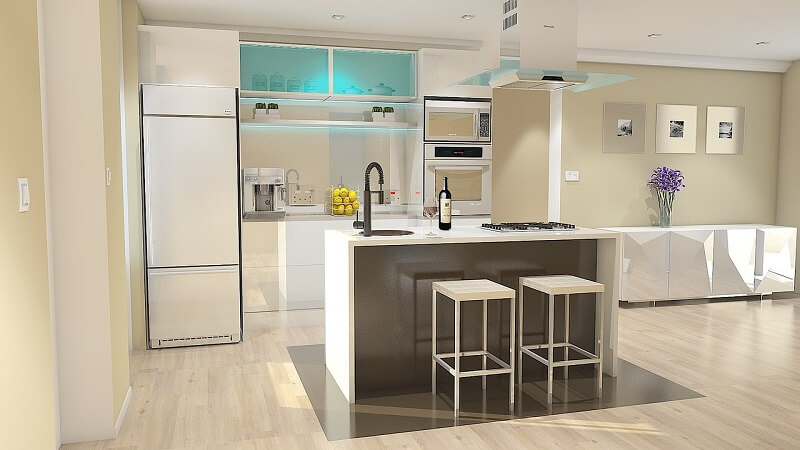A kitchen remodelling project is an extensive – and often very expensive – undertaking and there are many things that you need to take into account when remodelling your kitchen. And not only your family’s needs.
Remodelling your kitchen can add value to your home and make your family’s life much more enjoyable, but it could also fail to improve its value and may even impede access to one of the most important areas of the family home.
To understand which design elements you need to take into account to design a kitchen that perfectly suits your family’s needs and successfully adds value to your home, a good place to start is with the mistakes that other homeowners have made.
Table of Contents
Here are six mistakes to avoid kitchen design

1. Designing your kitchen specifically for your family
Your family’s needs are very important. However, that doesn’t mean that you should design your kitchen, or any other part of your home for that matter, specifically for your family.
You have to think about the future and your home’s resale value, so don’t make changes to your kitchen that will make it unappealing to potential homebuyers, which doesn’t mean you shouldn’t you should ignore your family’s needs, but more so that when designing your kitchen you shouldn’t opt for changes that are too outlandish or trendy.
2. Not allowing for adequate natural light and ventilation
The way you position the lighting in the kitchen is very important, but don’t overlook the benefits of allowing natural light to enter the kitchen area and most certainly do not overlook the importance of allowing for ventilation.
Natural light does wonders for kitchens, as it does for all areas of the home. Therefore, when designing your new kitchen, try to position it so that adequate natural light enters and your kitchen feels open and breezy.
An effective ventilation system helps to keep your kitchen fresh and free of cooking smells, as will opening up your kitchen onto the dining room or an outdoor area.

3. Obstructing access to the kitchen or closing it in
Ensuring freedom of movement around what is known as the ‘kitchen triangle’ – the sink, stove and refrigerator – is very important, but also avoid obstructing access to the kitchen or closing it in with a small doorway.
One of the best kitchen design trends is to open up the kitchen onto the dining area or an outdoor area, as the balcony or patio. This is more in line with modern lifestyles and that is likely to be in line with your family’s needs.
4. Not providing adequate countertop space
If there is something most family kitchens are in need of that can be addressed with a kitchen remodelling project it is more countertop space. Most activities in the kitchen require countertop space and a great way to add more space, and make dining in the kitchen more appealing, is to add a kitchen island.
Take a look at the Leicht Contracts kitchen showrooms if you are in need of inspiration as you are sure to find something to inspire you there.

5. Not allowing for adequate storage space
Kitchens tend to become cluttered quickly and the best way to avoid clutter in your kitchen, especially in family kitchens, is to provide adequate storage space. Utilising the walls is a great way to maximise storage space as this keeps kitchen equipment off countertops, and if you have young children, away from inquisitive little fingers.
6. Not working with the right remodelling contractor
You may have designed the perfect kitchen for your family’s needs but if you work with the wrong remodelling contractor all that time and effort could go to waste, not to mention wasting the money you have spent and put the value of your home at risk. Take the time to source the right remodelling contractor, you won’t regret it.
Taking note of the mistakes that other homeowners have made is a great way to get your kitchen remodelling project off to the best start possible. Additionally, whilst your family’s needs are important, bear in mind that the changes you make should never come at the expense of your home’s value – that’s something you can’t allow to happen.

